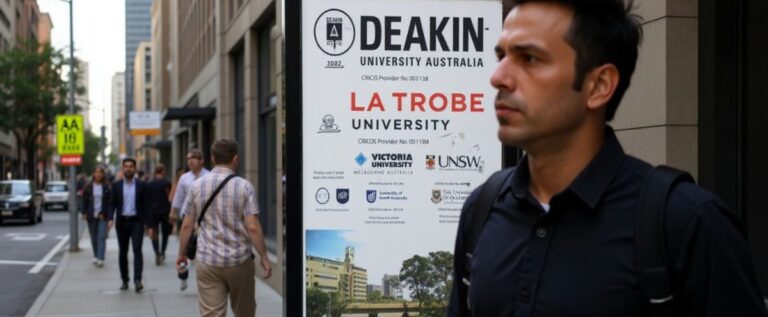
Australian officials and leading universities on Wednesday rejected China’s claims students should be “cautious” in choosing to study Down Under because of concerns over racist incidents during the coronavirus pandemic.
China’s ministry of education warned students on Tuesday there had been “multiple discriminatory incidents against Asians in Australia” during the pandemic, ramping up diplomatic tensions between the two countries.
The advisory was the latest in an escalating dispute between Beijing and Canberra that was deepened by Australia’s call for an independent inquiry into the origin and handling of the coronavirus in central China last year.
Beijing reacted furiously to the demand, targeting Canberra on several fronts, including tourism, trade and now Chinese students, the largest overseas group in Australian universities.
Australian Education Minister Dan Tehan hit back Wednesday, saying the country was a multicultural society that welcomed international visitors.
“Our success at flattening the curve means we are one of the safest countries in the world for international students to be based in right now,” he said in a statement.
“We reject China’s assertion that Australia is an unsafe destination for international students.”

Racism in Australia denied
Racism toward Asians has reportedly increased during the pandemic, with the New South Wales anti-discrimination commission saying instances included people being bullied for wearing a face mask, spat at and harassed in public, and racist language written across cars and private property.
Vicki Thomson, chief executive of Australia’s prestigious Group of Eight universities, told AFP they would “be very concerned” if Beijing’s warning deterred students from coming to Australia.
“We’ve had no evidence provided to us that there are issues of racial discrimination occurring on our campuses, and I think it’s worth noting that we don’t have a lot of students on our campuses at the moment,” she said.
Thomson lamented that the sector had been “caught in the middle” of geopolitical tensions.
Australian universities are already facing massive losses as an indefinite coronavirus border closure locks out the foreign students who pump billions of dollars a year into the sector.
Beijing’s travel advice was largely symbolic but could interfere with a proposal to create a “secure corridor” for overseas students to return to Australia.
Education is Australia’s fourth-largest export — behind iron ore, coal and natural gas — with more than 500,000 international students enrolled last year, bringing about Aus$37 billion into the economy.
China’s statement came a day after a foreign ministry spokeswoman warned of “a lot of discrimination” against Chinese people in Australia — and days after Beijing told citizens not to travel there at all.
As China has pursued a more combative foreign policy and sought to assert itself on the world stage, tensions with many democracies have risen.
In response to Australia backing the call for an independent virus inquiry, China’s ambassador in Canberra threatened a widespread consumer boycott of Australian products — a warning followed up by a bar on four major Australian beef exporters.
That was followed in May by an 80% tariff on Australian barley over dumping allegations, a move grain growers say will cost at least 500 million Australian dollars (US$350 million) a year.
Liked this? Then you’ll love…
What Chinese students should know about studying in Australia in 2020
Is China right in asking its students to reconsider studying in Australia?







